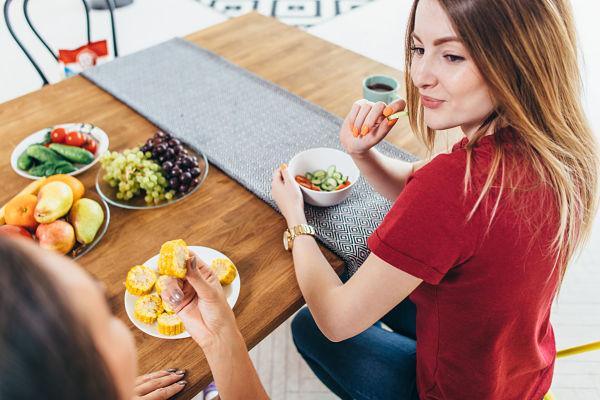Why Vegans are in danger of having too little iodine

Veganism has risen considerably in the last few years, in fact a report by research firm Global Data estimated that it had risen by 600% over 3 years in the US and we frequently follow such trends in this country. In fact we have already seen that an initial proliferation of independent vegan cafes and restaurants has led to more national chains providing vegan options and this has now extended to supermarkets.
In January the charity Veganuary claims to have inspired over 150,000 people in the UK to newly try eating vegan meals.
However, people who become vegan are often unaware of the potential risk they run in following a diet which contains little of no sources of iodine.
Why do we need iodine?
Your thyroid needs iodine to function properly so having enough iodine ensures that it can properly manage your metabolism; detoxification; growth and development.
Lack of iodine can lead to the development of a goitre as well as making you feel tired, weak, and more prone to infection and illness. It is likely to see you gain weight and in some cases can lead to anxiety and depression.
There are also severe consequences for pregnant women who do not have enough iodine. It has a crucial role in the development of the brain and nervous system of the foetus and lack of iodine therefore leads to significant mental impairment in the baby.
Once you are over the age of 14, the daily recommendation is for 150 mcg of iodine - with pregnant and breastfeeding women needing 200 mcg daily.
Where is iodine found?
The richest sources of iodine are in fish, shellfish and dairy products like milk, cheese and yoghurt. A 4 to 6 oz. serving of fish (for example) will provide at least half that which is required - although the iodine content of fish varies enormously i.e. white fish contains more iodine than oily fish
Of course this presents a problem since these foods will not feature in a vegan diet. It is crucial, therefore, that other iodine containing foods are included for example:
- Cranberries - 56g - 200 mcg
- Baked Potato - one medium - 60 mcg
- Haricot Beans - 64g - 32 mcg
Most plant foods will contain low levels of iodine and of course it’s important to realise that those levels will actually vary depending on the amount of soil where the plants were grown.
Unfortunately milk substitute drinks like soya, almond and coconut also lack iodine. In fact the average iodine content of milk alternatives is just 1.7% of that in milk. Please see my blog post about a study on the subject here
Too much iodine is also a problem
Dried seaweed has an incredible amount of iodine; a 7g serving will contain 4,500 mcg of iodine. This puts it firmly in the handle with care box as too much iodine is also extremely bad for you. In fact the Vegan Society warns against excessive eating of seaweeds such as kelp.
For the same reason you should also be very careful about taking iodine supplements.
This is because excessive iodine is actually toxic to your body and can cause nausea, stomach ache and diarrhoea; it can also cause a runny nose, headache and fever and even chemical burns of your mouth and throat. More worryingly, ongoing excess iodine can cause iodine induced hyperthyroidism (IIH), and severe iodine poisoning can induce coma.
Conclusion
It’s easy to take our bodies for granted and to remain largely unaware of the essential elements that we need to stay healthy. That can be compounded when lifestyle trends are being supported without any flags being raised as to any potentially adverse consequences.
I would urge you to make sure you monitor and maintain the iodine content your body needs. Drs Bath and Ryman have written a very helpful food fact sheet for the British Dietetic Society (which includes advice for pregnant and breastfeeding mums). You might find this useful
Although every effort is made to ensure that all health advice on this website is accurate and up to date it is for information purposes and should not replace a visit to your doctor or health care professional.
As the advice is general in nature rather than specific to individuals Dr Vanderpump cannot accept any liability for actions arising from its use nor can he be held responsible for the content of any pages referenced by an external link










